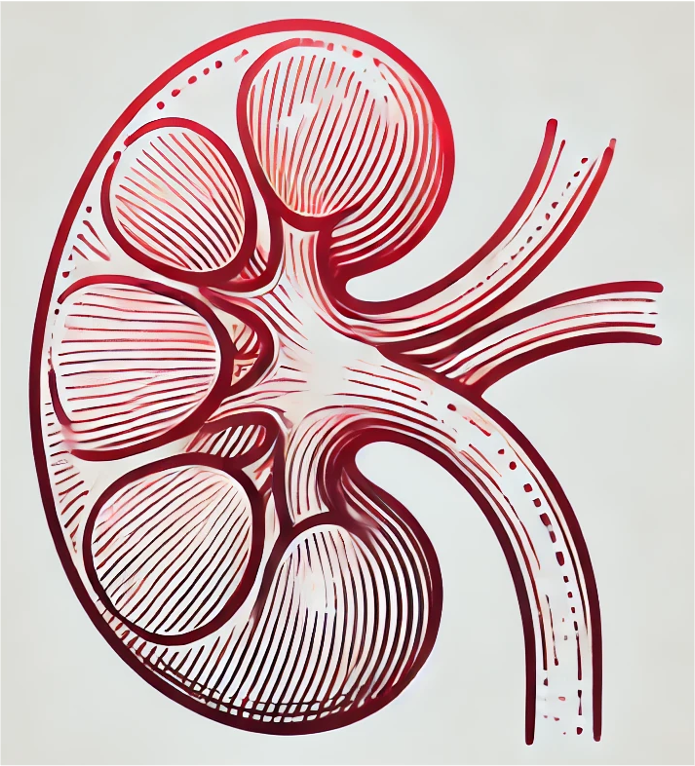Description
Streptozotocin (STZ) is an anti-cancer drug that is primarily used to treat neuroendocrine tumors (NETs) in clinical settings and develop type 1 diabetes rodent models in experimental fields. STZ is incorporated into cells through the glucose transporter, GLUT2, which is primarily expressed in pancreatic -cells or proximal tubular epithelial cells in the kidney. However, its cytotoxic effects on kidney cells have been underestimated and the underlying mechanisms remain unclear. We herein demonstrated that DNA damage and subsequent p53 signaling were responsible for the development of STZ-induced tubular epithelial injury. We detected tubular epithelial DNA damage in NET patients treated with STZ. Unbiased transcriptomics of tubular epithelial cells in vitro showed the activation of the p53 signaling pathway by STZ. STZ induced DNA damage and activated p53 signaling in vivo in a dose-dependent manner, resulting in reduced membrane transport. The localization of STZ-induced kidney injury was limited to within the kidney cortex, which was independent of blood glucose. The pharmacological inhibition of p53 and sodium-glucose transporter 2 (SGLT2) mitigated STZ-induced epithelial injury. However, the cytotoxic effects of STZ on pancreatic -cells were preserved in SGLT2 inhibitor-treated mice. The present results demonstrate the strong proximal tubular-specific cytotoxicity of STZ and the underlying mechanisms in vivo, which may be ameliorated by a SGLT2 inhibitor pretreatment. Since the cytotoxic effects of STZ against -cells were not impaired by dapagliflozin, a pretreatment with a SGLT2 inhibitor has potential as a preventative remedy for kidney injury in NET patients treated with STZ.
Overall Design
Comparative gene expression profiling analysis of RNA-seq data for control NRK-52E cells and STZ-treated NRK-52E cells.
Curator
yq_pan
